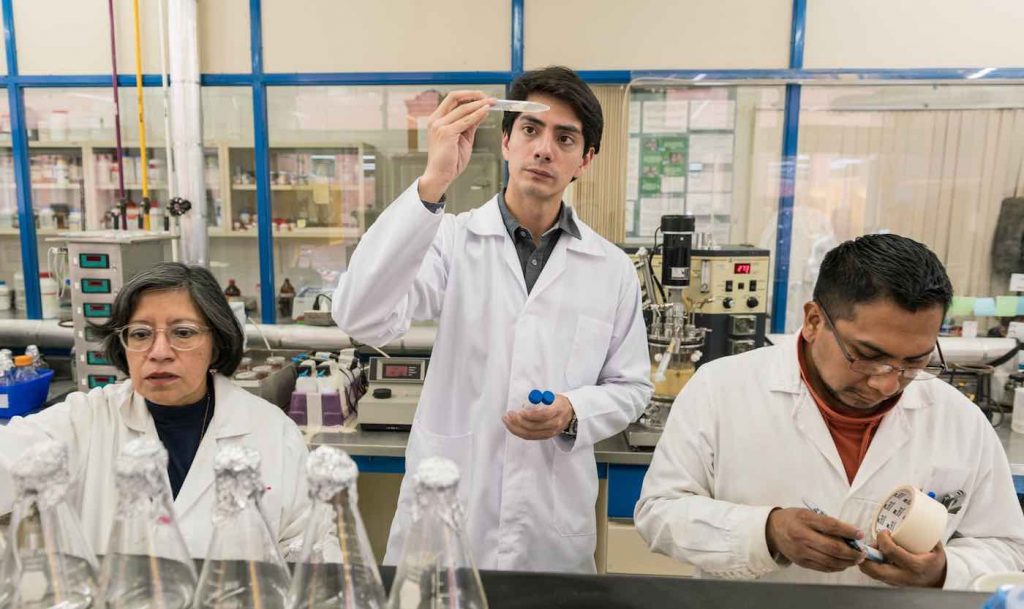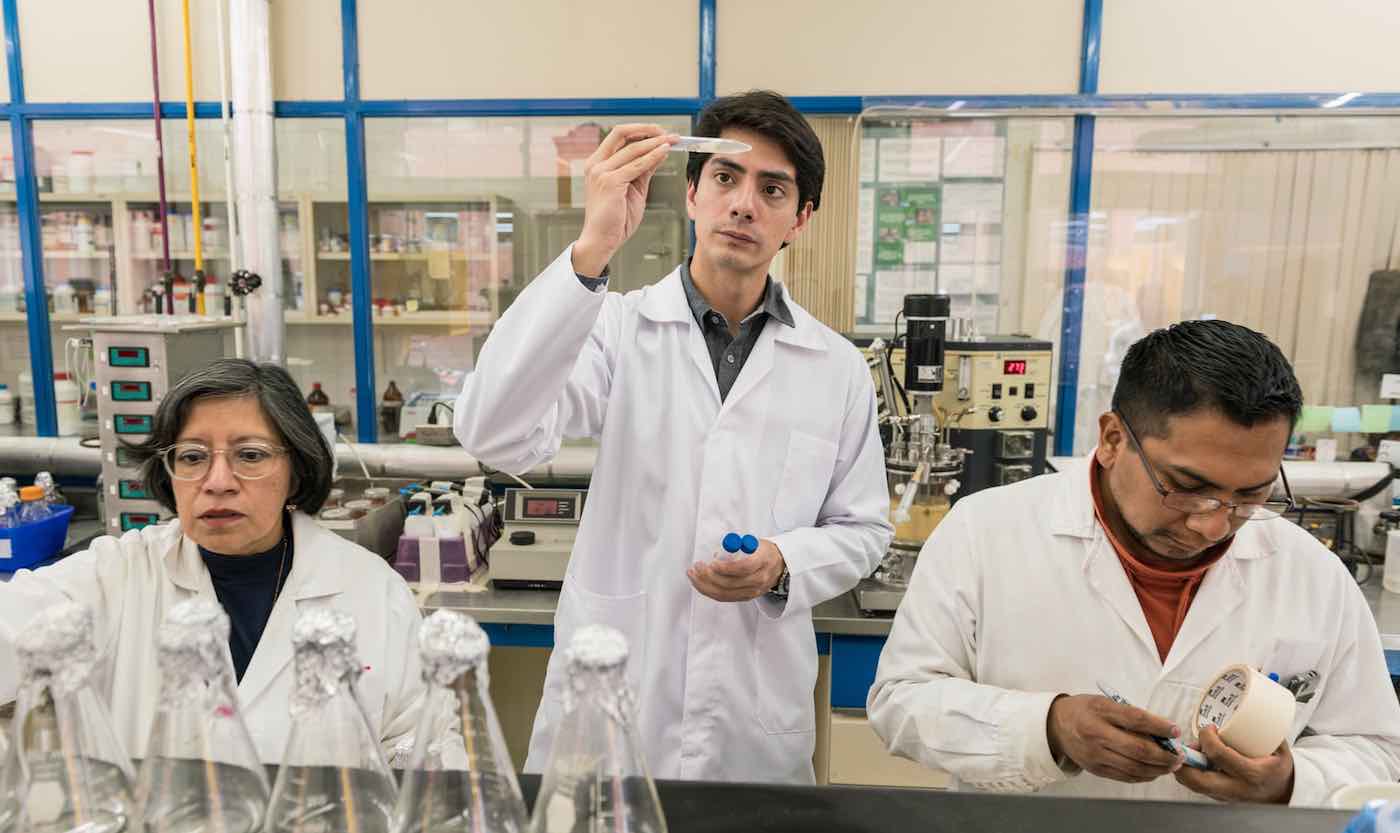When 18-year old Javier Larragoiti was told his father had been diagnosed with diabetes, the young man, who had just started studying chemical engineering at college in Mexico City, decided to dedicate his studies to finding a safe, sugar-alternative for his father.
“My dad tried to use stevia and sucralose, just hated the taste, and kept cheating on his diet,” Larragoiti told The Guardian. Stevia and sucralose are both popular sugar alternatives, and many reduced-sugar products available today contain one or the other.
With stevia and sucralose out of the picture, the young chemist needed to keep searching. He started dabbling with xylitol, a sweet-tasting alcohol found in birch wood but also in many fruits and vegetables. Xylitol is used in sugar-free products such as chewing gum and also in children’s medicine, but is toxic to dogs even in small amounts.
“It has so many good properties for human health, and the same flavor as sugar, but the problem was that producing it was so expensive,” said Larragoiti. “So I decided to start working on a cheaper process to make it accessible to everyone.”
AMAZING: Bedridden for Years, Man Proves Experts Wrong By Inventing Surgery to Cure Himself
Xylitol Made Cheaper
Corn is Mexico’s largest agricultural crop, and Javier has now patented a method of extracting xylitol from discarded corn cobs. Best of all, with 28 million metric tons of corn cobs generated every year in Mexico as waste, there’s no shortage of xylitol-generating fuel.
Simultaneously, Larragoiti hit on the idea of how to make xylitol less expensive, while inventing a way to reuse the 28 million tons of corn cobs, substantially upgrading the traditional means of disposal: burning them.
Especially in a pollution-heavy country like Mexico, reducing the amount of corn waste burned, would eliminate a portion of the carbon emissions.
His business, Xilinat, buys waste from 13 local farmers, producing 1 ton of the product each year. His invention was awarded a prestigious $310,000 Chivas Venture prize award, which will enable him to industrialize his operation and scale up production 10-fold, diverting another 10 tons of corn cob from the furnace.
A Better Choice for Diabetics
Obesity affects a dizzying number of people worldwide. Some estimates range as high as 1 in 7 people, while type-2 diabetics and those at risk for type-2 diabetes account for 10% of the world population.
Javier says that sugary diets are a real problem in Mexico; a country with the world’s second-highest rate of obesity. The nation has already taxed sugary drinks as a means to combat one of the main sources of the problem.
In a strange coincidence, Larragoiti’s method of extracting a sugar substitute happens to incorporate the same vegetable whose other byproduct incites the obesity epidemic in the United States: high-fructose corn syrup.
“It’s kind of ironic,” Larragoiti continues in The Guardian interview, “High fructose corn syrup is just a bomb of carbs and concentrated sugar that makes a high peak of insulin. It’s many times sweeter than regular glucose. Companies use and pay less and that’s the issue.”

MORE: ‘For the First Time’, Researchers Use Healthy Stem Cells for Future Type 1 Diabetes Cure
High-fructose corn syrup is added into most processed and packaged foods and drinks, and plays a big part in the obesity epidemic in the United States, according to the CDC, which reports it affects 93 million adults.
Using Corn For Sugar Substitutes—Instead of Sugar Bombs
However, with North America growing more corn than anywhere else on the planet, and with the Department of Agriculture (DOA) subsidizing its growth, the supply of corn for conversion to corn syrup is cheap and guaranteed.
If Javier’s method of extracting a sugar-free substitute were implemented, the United States could convert corn fields into a more nutrient-dense row crop, shift supply away from the creation of high-fructose corn syrup, or even increase the utilization of corn for bio-ethanol, which would cause the price of different petroleum products to drop.
Regardless, Larragoiti says that he is simply happy that his project has helped to keep his dad from succumbing to a sugary diet that would provoke his diabetes.
“My dad is super-happy,” Larragoiti says, finishing his interview. “He uses my product every day and he’s willing not to cheat on his diet any more!”
Plant Some Positivity By Sharing The Good News With Your Friends On Social Media…





















This is a good start but he has to figure out a way to ramp up production since 1 ton is a drop in the bucket.